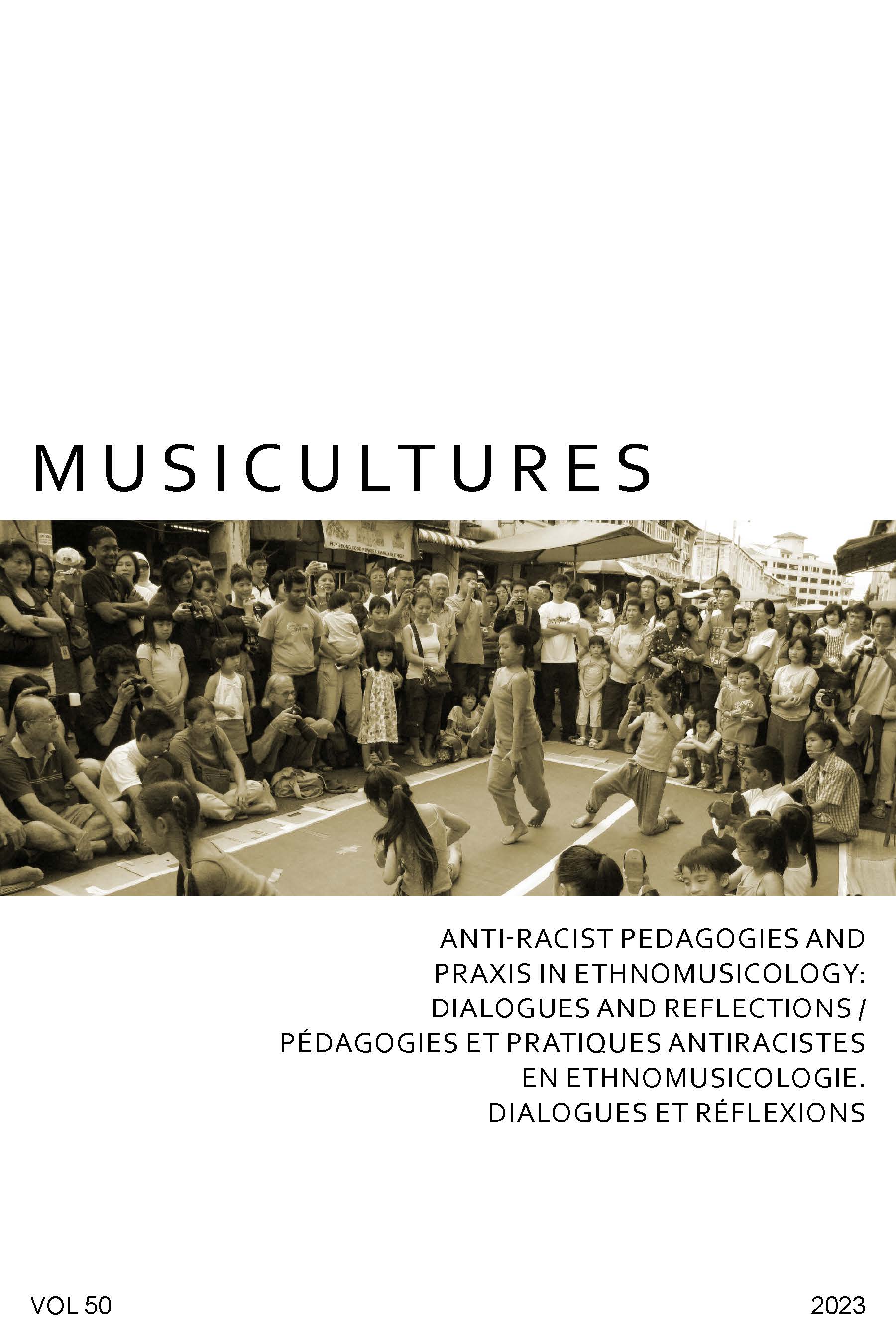References
Agrell, Jeffrey. 2008. Improvisation Games for Classical Musicians. Chicago: GIA Publications.
Ake, David. 2001. Jazz Cultures. Berkeley: University of California Press.
Alberge, Dayla. 2020. Why Today’s Musicians Should Follow Classical Greats ... and Improvise. The Guardian, June 6.
Barton, Georgina. 2018. The Relationship Between Music, Culture, and Society: Meaning in Music. In Music Learning and Teaching in Culturally and Socially Diverse Contexts: Implications for Classroom Practice, 23–41. Cham, Switzerland: Palgrave Macmillan.
Berliner, Paul F. 1994. Thinking in Jazz: The Infinite Art of Improvisation. Chicago: University of Chicago Press.
Cohen, Sara. 1993. Ethnography and Popular Music Studies. Popular Music 12 (2): 123–38.
da Fonseca-Wollheim, Corinna. 2008. Classical Musicians Learn to Improvise. Wall Street Journal, May 21. http://online.wsj.com/article/SB121133866811609667.html (accessed December 13, 2022).
de Lima, Brian Jude. 2017. Reanimating Dissonance: Cultivating the Antecedents of Barry Harris’ Concept of Movement as Multidimensional Pedagogical Tool for Ontario Post-Secondary Jazz Curricula. PhD dissertation, York University. http://hdl.handle.net/10315/33597.
Elliott, David J. 1994. Music, Education and Musical Value. In Musical Connections: Tradition and Change. Proceedings of the 21st World Conference of theInternational Society for Music Education, Held in Tampa, Florida, USA, 48–49. Ed. H. Lees. Auckland: ISME.
Elliott, David J., and Marissa Silverman. 1995. Music Matters: A New Philosophy of Music Education. Oxford: Oxford University Press.
Franklin, Erik D. 2022. Going Beyond the Page: Reintroducing Improvisation Into Classical Music Pedagogy Through Partimenti. DMus dissertation, Indiana University.
Gjerdingen, Robert. 2016. Partimenti in Their Historical Context. Monuments of Partimenti (website). March 19. Internet Archive. https://web.archive.org/web/20160319181434/http://faculty-web.at.northwestern.edu/music/gjerdingen/partimenti/aboutParti/histOverview.htm (accessed October 25, 2023).
Merriam, Alam P. 1964. The Anthropology of Music. Evanston, IL: Northwestern University Press.
Monson, Ingrid. 1995. The Problem with White Hipness: Race, Gender, and Cultural Conceptions in Jazz Historical Discourse. Journal of the American Musicological Society 48 (3): 396–422. https://doi.org/10.2307/3519833.
Musco, Ann Marie. 2010. Playing by Ear: Is Expert Opinion Supported by Research? Bulletin of the Council for Research in Music Education, no. 184: 49–64. http://www.jstor.org/stable/27861482.
Perlman, David. 2017. Ben Stein On 17th-Century Jazz: A Conversation. The WholeNote. November 1. https://www.thewholenote.com/index.php/newsroom/feature-stories/27445-ben-stein-on-17th-century-jazz-a-conversation (accessed October 25, 2023).
Prouty, Kenneth E. 2005. The History of Jazz Education: A Critical Reassessment. Journal of Historical Research in Music Education 26 (2): 79–100.
Prouty, Kenneth E. 2012. Knowing Jazz: Community, Pedagogy, and Canon in the Information Age. Jackson: University Press of Mississippi.
Rose, Simon. 2017. The Lived Experience of Improvisation: In Music, Learning and Life. Chicago. Intellect.
Roth, Russell. 1952. On the Instrumental Origins of Jazz. American Quarterly 4 (4): 305–16. https://doi.org/10.2307/3031415.
Sanguinetti, Giorgio. 2012. The Art of Partimento: History, Theory, and Practice. Oxford: Oxford University Press.
Walker, Robert. 2001. The Rise and Fall of Philosophies of Music Education: Looking Backwards in Order to See Ahead. Research Studies in Music Education 17 (1): 3–18. https://doi.org/10.1177/1321103X010170010201.
Wilf, Eitan Y. 2014. School for Cool: The Academic Jazz Program and the Paradox of Institutionalized Creativity. Chicago: University of Chicago Press.
- The author retains copyright over the work.
- The author grants the journal owner (The Canadian Society for Traditional Music / La Société canadienne pour les traditions musicales) an exclusive license to publish the work.
- The author may post a pre-print or post-print version of the work (see definitions below) on a personal website for up to twelve months after the work is published in MUSICultures. After twelve months, the pre-print version must be replaced with the published version.
- The author may deposit the published PDF of the work in a non-commercial online repository twelve months after the work is published in MUSICultures, or any time thereafter.
- Any such deposit must include a link to the work on the MUSICultures website, e.g., https://journals.lib.unb.ca/index.php/MC/article/view/19996
A pre-print is a work-in-progress—a contribution not yet accepted, or perhaps even submitted, to MUSICultures.
A post-print is the version of a contribution after peer review and acceptance by MUSICultures, with revisions completed.
The published version is the PDF file of a contribution as it appears in MUSICultures.
Please note that academia.edu and ResearchGate.com are both for-profit repositories; authors may not deposit the published PDF of the work in these repositories until after the journal’s embargo period.
For permission to reprint or translate material from MUSICultures, please contact Heather Sparling, General Editor of MUSICultures (heather_sparling@cbu.ca).

